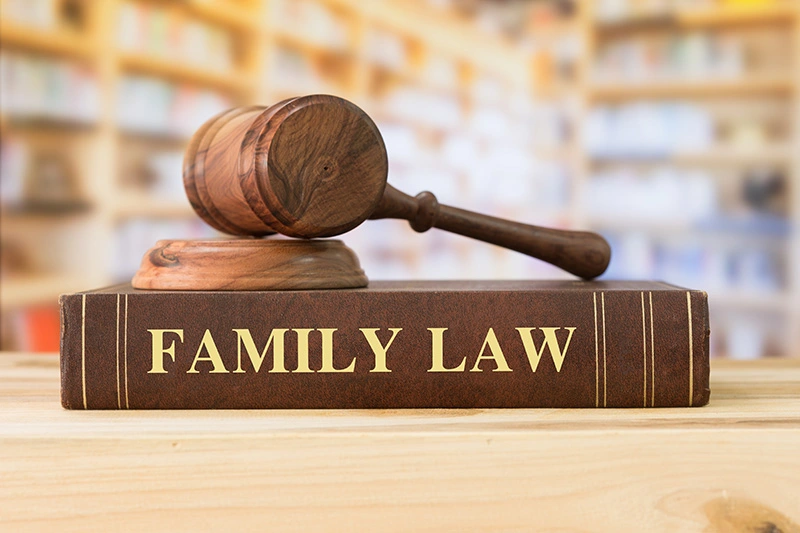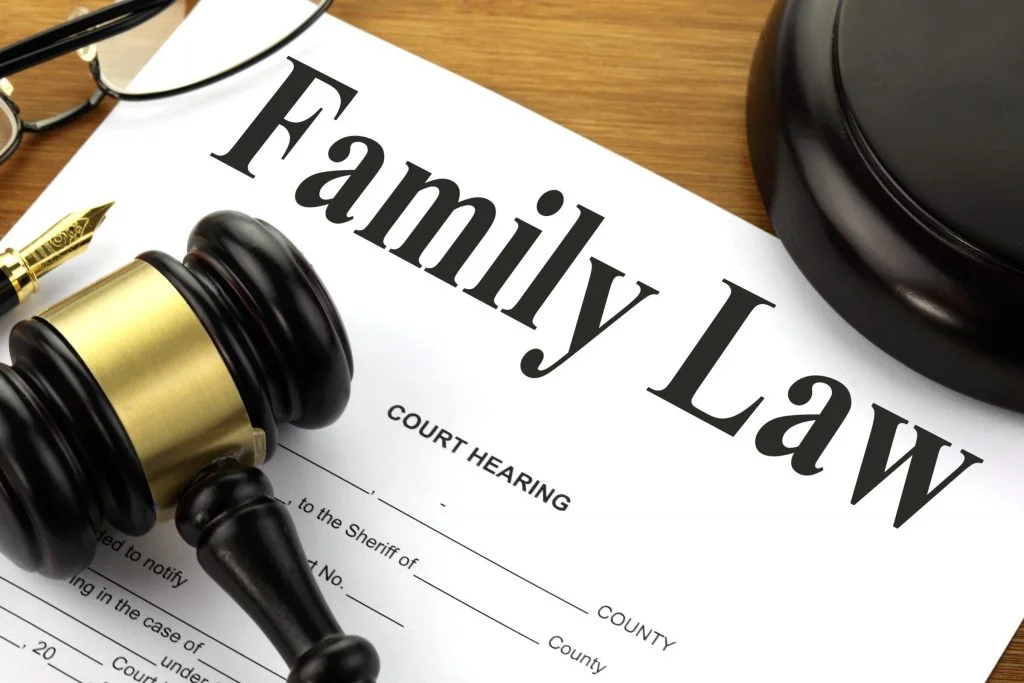Choosing the right family lawyer can be a daunting task, especially during trying times when you may be dealing with divorce, child custody, or other family-related issues. This article aims to guide you through the process, helping you understand what a family lawyer does, how to identify your legal needs, and the criteria for selecting the best professional for your situation.
Understanding the Role of a Family Lawyer
A family lawyer Sydney specializes in legal issues that pertain to family relationships. They play a crucial role in navigating the often complex and emotionally charged landscape of family law. Their expertise enables clients to understand their rights and responsibilities within the family unit. Family lawyers not only provide legal representation but also serve as a source of support and guidance during some of the most challenging times in a person’s life. Their understanding of the emotional aspects of family disputes allows them to approach cases with empathy and sensitivity, which can be invaluable in reaching amicable resolutions.
Key Responsibilities of a Family Lawyer
Family lawyers handle a variety of issues, including divorce proceedings, child custody battles, adoption processes, and prenuptial agreements. They also assist with matters related to spousal support, property division, and domestic violence cases. In addition to these responsibilities, family lawyers often engage in negotiations and mediation sessions to help parties reach a settlement without the need for a lengthy court battle. This not only saves time and money but also helps preserve relationships, especially when children are involved.
Additionally, family lawyers are responsible for providing legal advice and ensuring that their clients are fully informed of their rights and options. Their ultimate goal is to advocate for the best interests of their clients while facilitating a resolution to the legal matters at hand. They may also prepare legal documents, represent clients in court, and conduct legal research to ensure that their strategies are well-founded and effective. The multifaceted role of a family lawyer requires not just legal knowledge but also strong communication and negotiation skills, as they often find themselves mediating between emotionally charged parties.
Specializations within Family Law
Family law is a broad field, and many lawyers choose to specialize in specific areas to enhance their expertise. Some common specializations include child custody law, divorce mediation, and adoption law. Each specialization comes with its own set of complexities and nuances, requiring lawyers to stay updated on the latest laws and regulations that govern their area of practice. For instance, child custody lawyers must be well-versed in the factors that courts consider when determining custody arrangements, such as the child’s best interests, parental fitness, and the ability to provide a stable environment.
Understanding the specific specialization of a lawyer can help you choose someone more suited to your particular legal issue. For example, if you’re dealing with a complicated custody battle, hiring a lawyer with extensive experience in child custody cases can often yield better results. Moreover, some family lawyers may also focus on alternative dispute resolution methods, such as collaborative law or mediation, which can provide a more peaceful and cooperative approach to resolving family disputes. This is particularly beneficial for families looking to maintain relationships post-divorce or separation, as it encourages open communication and mutual respect, which can be crucial for co-parenting arrangements.
Determining Your Personal Legal Needs
The first step in finding the right family lawyer is to identify your unique legal needs. This means taking a close look at your situation and understanding what type of legal assistance you require.
Identifying Your Legal Problem
Take time to reflect on the specific issues you’re facing. Are you going through a divorce? Seeking custody of your children? Or perhaps you are looking to adopt? Each scenario may require different forms of legal intervention. Understanding your problem is essential to finding a lawyer who can best assist you.
List your concerns and potential questions that might arise surrounding your issue. This will not only help you articulate your needs but also aid your selected lawyer in understanding your case better. For example, if you are navigating a divorce, consider questions about asset division, spousal support, and the impact of your divorce on your children. These inquiries can guide your discussions and ensure that no critical aspect of your case is overlooked.
Prioritizing Your Legal Requirements
Once you’ve identified your legal problem, it is important to prioritize your needs. What is most important to you in this legal matter? Is it the custody of your children, fair asset division, or maintaining your privacy? Being clear about your priorities will help you convey your needs during consultations with potential lawyers.
Consider creating a list of outcomes you desire and how flexible you are regarding each aspect. This will also provide the lawyer a clearer understanding of your goals and how they can best assist you. Additionally, think about the emotional and financial implications of your legal situation. For instance, if you are concerned about the costs associated with prolonged legal battles, it may be beneficial to prioritize a swift resolution over a potentially more favorable, yet time-consuming, outcome. Understanding these nuances can significantly shape the strategy your lawyer will employ on your behalf.
Criteria for Choosing the Best Family Lawyer
Once you have a clear understanding of your legal needs, the next step is to select the family lawyer that best fits your requirements. There are several criteria to consider during this selection process.
Experience and Expertise
One of the most crucial factors to evaluate is a lawyer’s experience and expertise in handling cases similar to yours. An experienced lawyer will have navigated various cases and will be better prepared to anticipate potential challenges and offer effective solutions.

Ask how many cases they have handled of your type and what their success rate is. A seasoned lawyer will not only have good knowledge of the current law but will also have valuable insights that come from experience.
Reputation and Reviews
A lawyer’s reputation in the community can provide insight into their professionalism and efficacy. Reviews from previous clients can be particularly telling. These testimonials often give you a glimpse into the lawyer’s communication style, dedication, and effectiveness in resolving issues.
Don’t hesitate to ask for references or check online reviews to get a better picture of their reputation. Platforms such as legal forums and social media can also be valuable resources for gauging the lawyer’s standing among peers and clients alike.
Communication and Accessibility
Effective communication is vital to a productive lawyer-client relationship. You want a lawyer who listens to your concerns and explains legal concepts in understandable terms. During your initial consultations, pay attention to how well they communicate and whether they are responsive to your questions.
Accessibility is also key. Ensure that the lawyer you choose is available to speak with you when needed, whether through phone calls, emails, or in-person meetings. A lawyer who is easy to reach can alleviate much of the stress associated with legal proceedings.
The Consultation Process
Once you’ve narrowed down your options, it’s time to schedule consultations with potential lawyers. This initial meeting is a critical step towards finding the right fit for your needs.
Preparing for Your Initial Consultation
Preparation is key to making the most out of your consultation. Bring all necessary documents related to your case, including court orders, financial statements, and any correspondence relevant to your legal issue. Additionally, draft a list of questions to ask the lawyer, focusing on their experience and approach to your case.
Having a well-organized consultation can help the lawyer assess your situation more effectively and offer appropriate advice. This preparation demonstrates your seriousness in addressing your legal matter.
Questions to Ask During the Consultation
During your consultation, consider asking questions such as:
- What are your recommendations for addressing my legal issue?
- What is your fee structure, and what can I expect in terms of total costs?
- How often will you communicate with me about the progress of my case?
These inquiries can provide you with valuable information on the lawyer’s style and whether you feel comfortable proceeding with them.
Making the Final Decision
After you’ve consulted with potential lawyers, the next step is to make a final decision based on your findings.
Evaluating Your Options
Take time to evaluate each lawyer you met with. Consider their expertise, communication style, and your comfort level. An effective lawyer-client relationship is fundamental to successfully navigating legal challenges.
Weigh the pros and cons of each option, and think about which lawyer aligns best with your priorities and needs. It can help to write down the advantages and disadvantages you observed during the consultation process.

Trusting Your Instincts
Finally, trust your instincts. Your gut feeling about a lawyer can often guide your decision-making process. If you felt comfortable and understood during your meetings, that’s a good sign. A lawyer who makes you feel at ease while being firm and knowledgeable is often the best choice.
Remember, you will be sharing personal information and relying on this professional for significant aspects of your life, so it is essential to feel a sense of trust and confidence in their abilities.
By following these guidelines and carefully evaluating your options, you will be well-equipped to find the best family lawyer for your personal legal needs.
See Also: What are the responsibilities of conveyancers in property transactions?


Leave a Reply